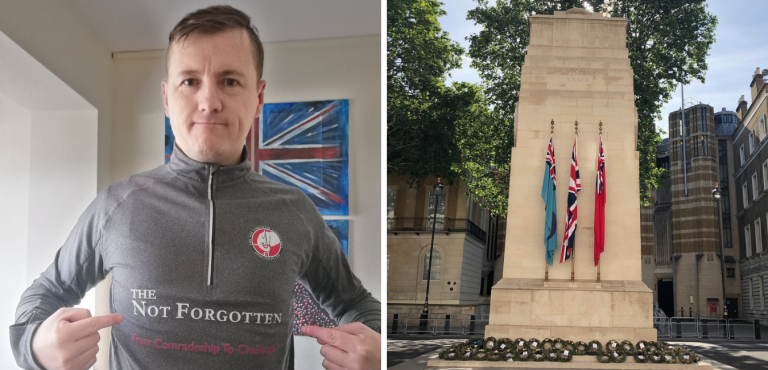Team Forces of Nature: An update on their epic kayak expedition
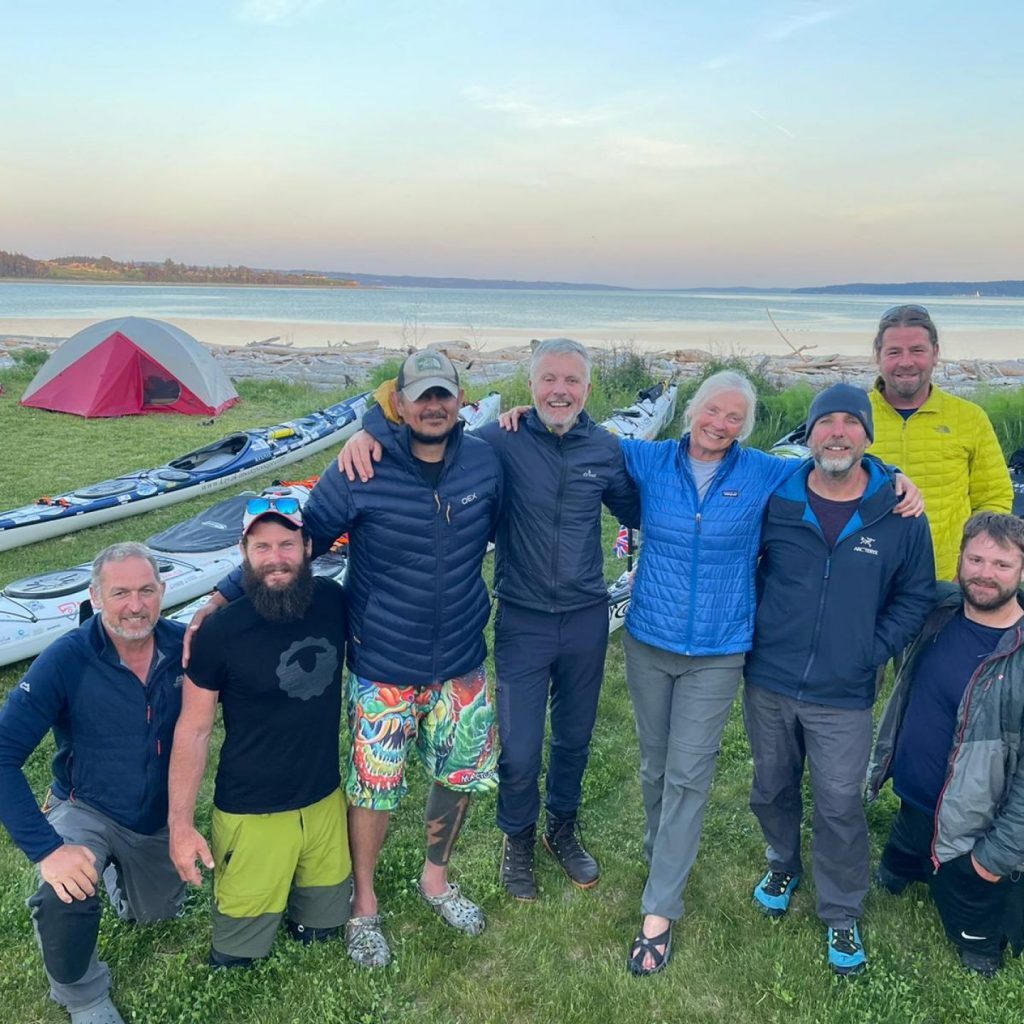
The team: Team Forces of Nature, an 8-man team of six injured veterans – with a range of injuries from gunshot wounds to amputations, paralysis to PTSD – and two able-bodied civilians. (7 of the team pictured left with local expert kayaker Susan Conrad).
The challenge: A 2,000km unsupported kayak expedition of The Inside Passage from Olympia in Washington State along the Fjordlands of Western British Columbia to Skagway in Alaska, estimated to take 90-100 days from May to August 2023. An infamous route with a forbidding coastline, unpredictable waters and dangerous wildlife. The expedition is raising vital funds for The Not Forgotten, as well as raising awareness of veterans’ issues and encouraging all veterans to aim for their personal goals regardless of their visible or hidden trauma.
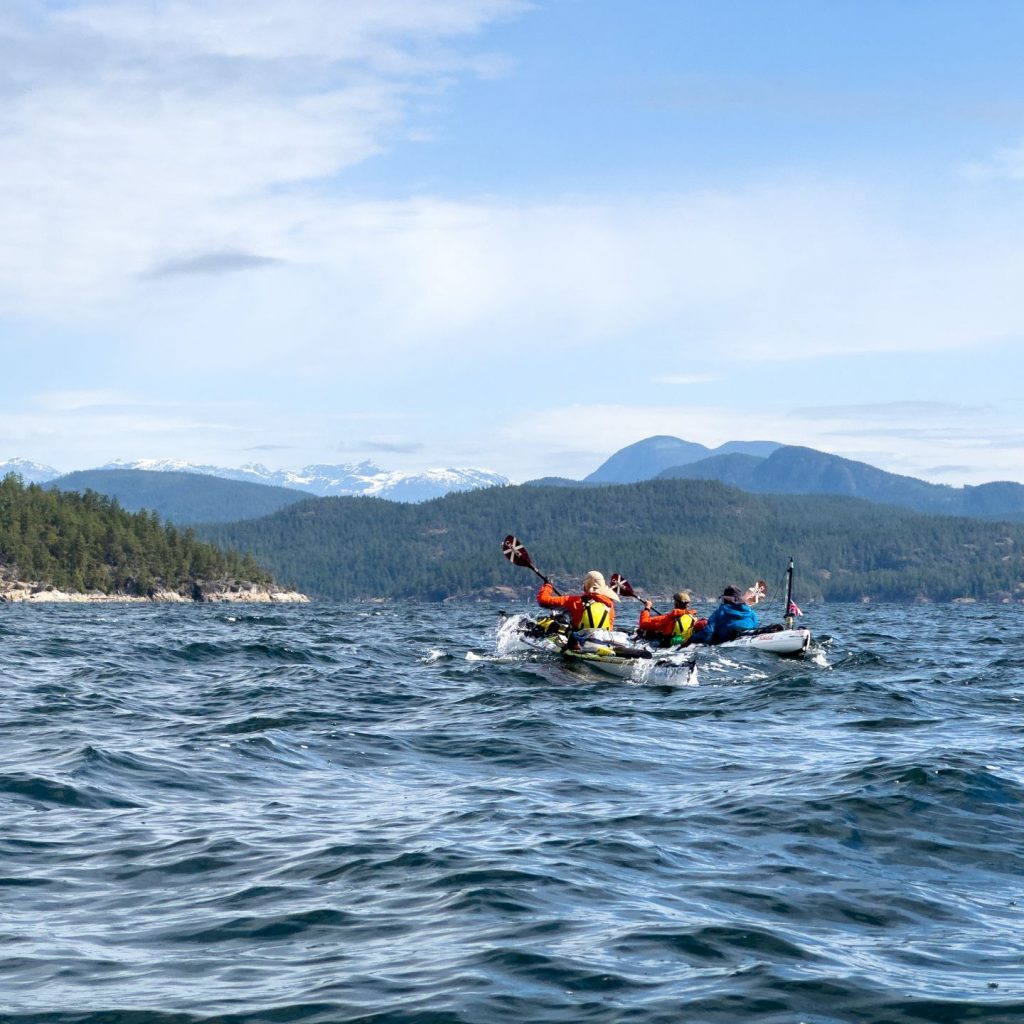
Current position:
Having covered over 760km in their first 28 days, on 5 June the team reached Port McNeil at the northern tip of Vancouver Island in British Columbia.
They stopped for a few days to restock supplies, recharge electronics, wash and sort kit, before setting off again and reaching the Cattle Islands on 6 June.
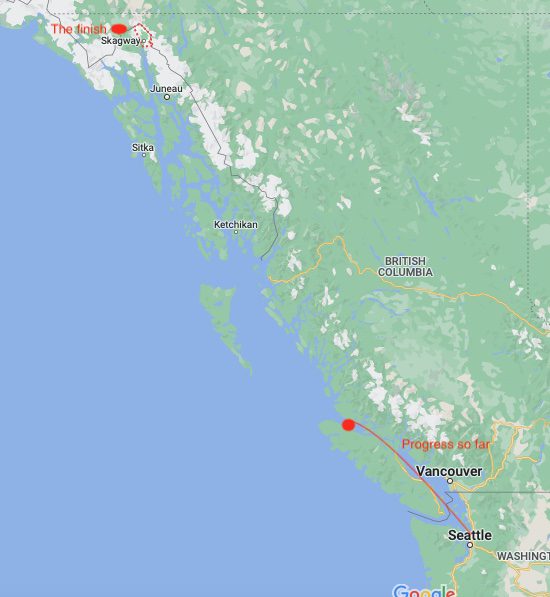
The route so far:
After a week’s unscheduled delay in Seattle following the team’s kayaks and equipment being held up in transit, Team Forces of Nature finally set off on 7th May on an adventure several years in the planning.
They departed from Steilacoom, Seattle with an uplifting send-off from locals, before crossing into Canadian water and navigating up the coast of British Columbia, covering an average of 24km per day.
The route from Washington then up around the East coast of Vancouver Island, camping at spots like Vashon Island, Blake Island, Possession Point, Oak Harbour, Blind Island State Park, Blackberry Point, Nanaimo, Rathtrevor, Shelter Point, Powell River, North Copeland Island, Stuart Island, John’s Point and Hardwicke Island.
On the Washington and Vancouver Island coasts they encountered locals delighted to furnish them with food and good wishes or to let them camp for free. But they will experience increasingly less human contact as weeks go by.
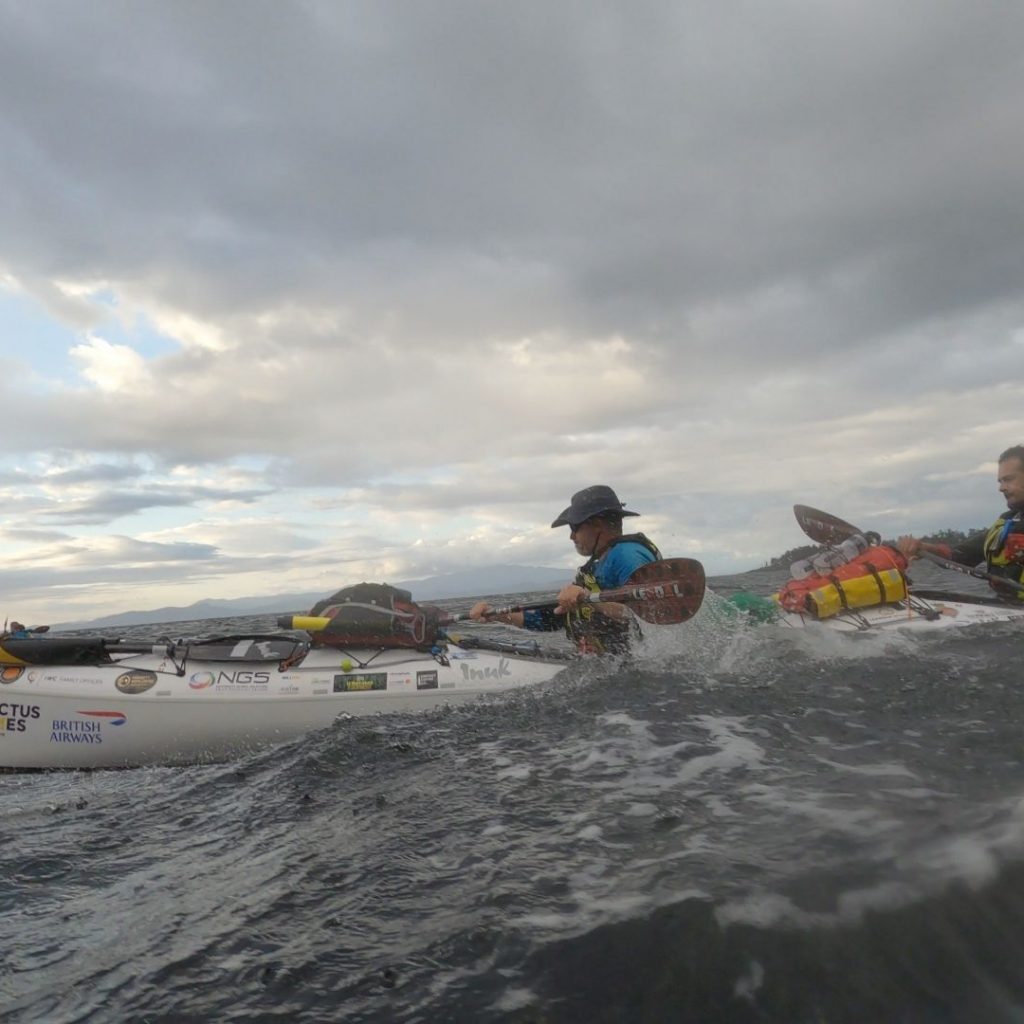
The challenges so far:
Until now the team have been fortunate with the weather but have still faced all sorts of challenges in their first few weeks. The water temperature is around just 5 degrees, and the flow of the water can be with them – or against, hugely affecting progress. Plotting the tides is vital, as is knowledge of how to navigate rapids and whirlpools.
They’ve had to contend with illness, equipment like foot pegs (vital for amputee kayakers), steering systems and rudders failing, having to conduct makeshift repairs whilst out on the water. Throw in periods of howling winds, low supplies, food cravings, physical and mental exhaustion and homesickness, and a picture soon emerges as to just how mentally tough and courageous this team of veterans is.
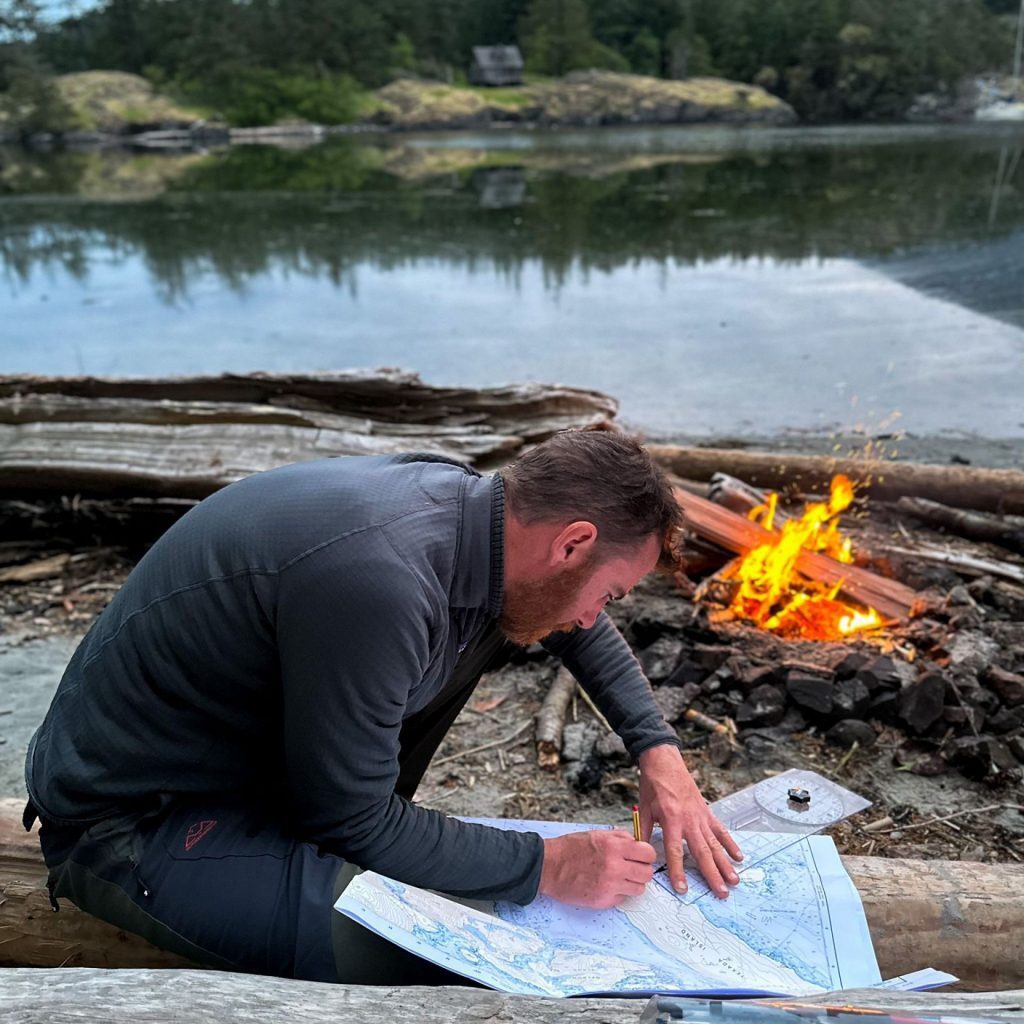
They need to know their specialist equipment (not just those normally used by kayakers but also the adaptive equipment to enable amputee kayaking) as well as all their charts and tech inside out, and be prepared to re-think plans in an instant.
They report having to learn to temper anger and frustration when they can’t control things, and how they have quickly adapted to important camp routines each night, pitching somewhere safe and getting food and rest before the daily struggle the next morning of packing your dry bag and its incredible amount of kit into your kayak once again.
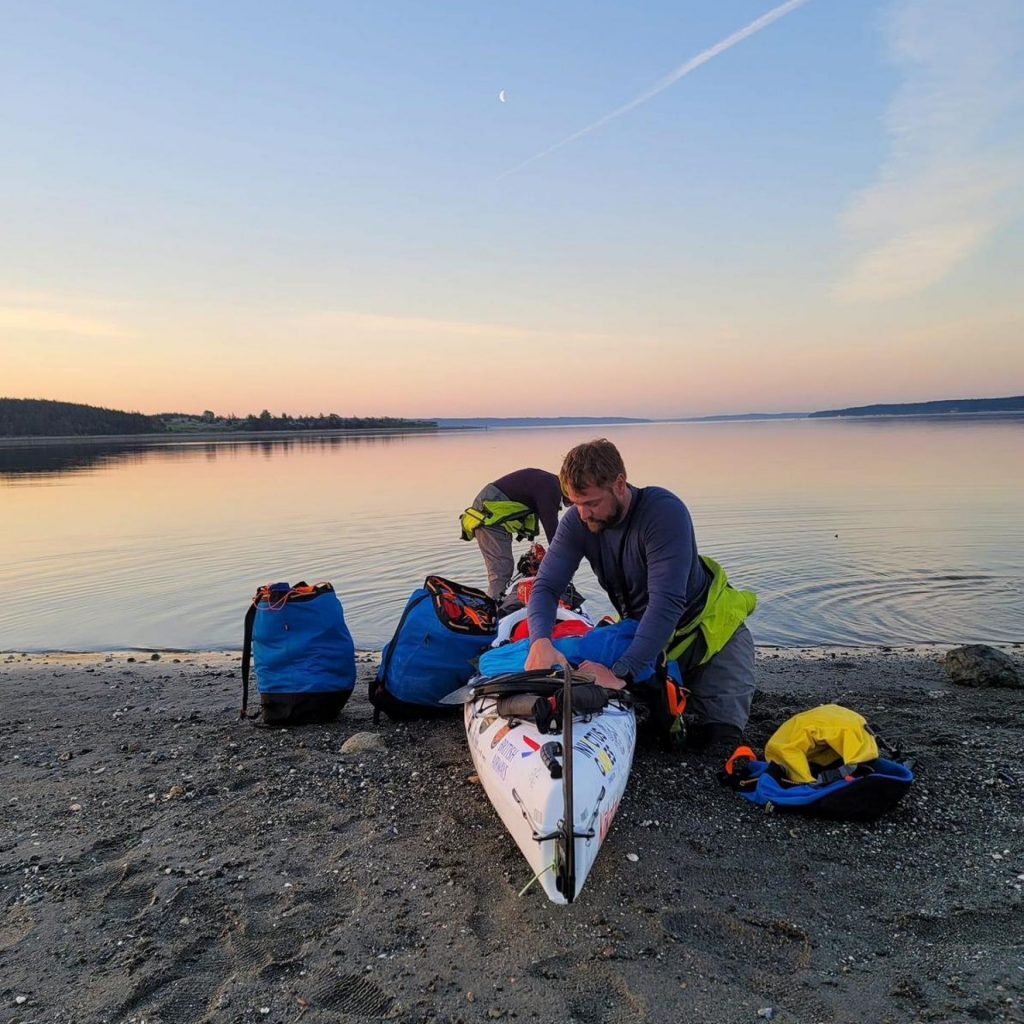
But what an experience...
Set against this is the breathtaking beauty of the landscape they are kayaking through, encounters with wildlife which will live with them for the rest of their lives, the sense of achievement with every hardship overcome and every kilometre travelled, and the almost inestimable feeling of belonging to a team and giving up the self to be part of something altogether bigger.
The team report having been joined by pods of porpoises, a family of three orcas, and a humpback whale breaching 30m from their bow. They’ve seen salmon leaping and kayaked over vast oyster beds, they’ve spotted deer, eagles, otters, and a small black bear (mercifully distant).
They describe the beauty of sunrises and sunsets, snow-capped mountains, trees of rich deep colours, towering cliffs, mesmerising patterns on the water: a bewitching landscape and a feeling of serenity and peace.
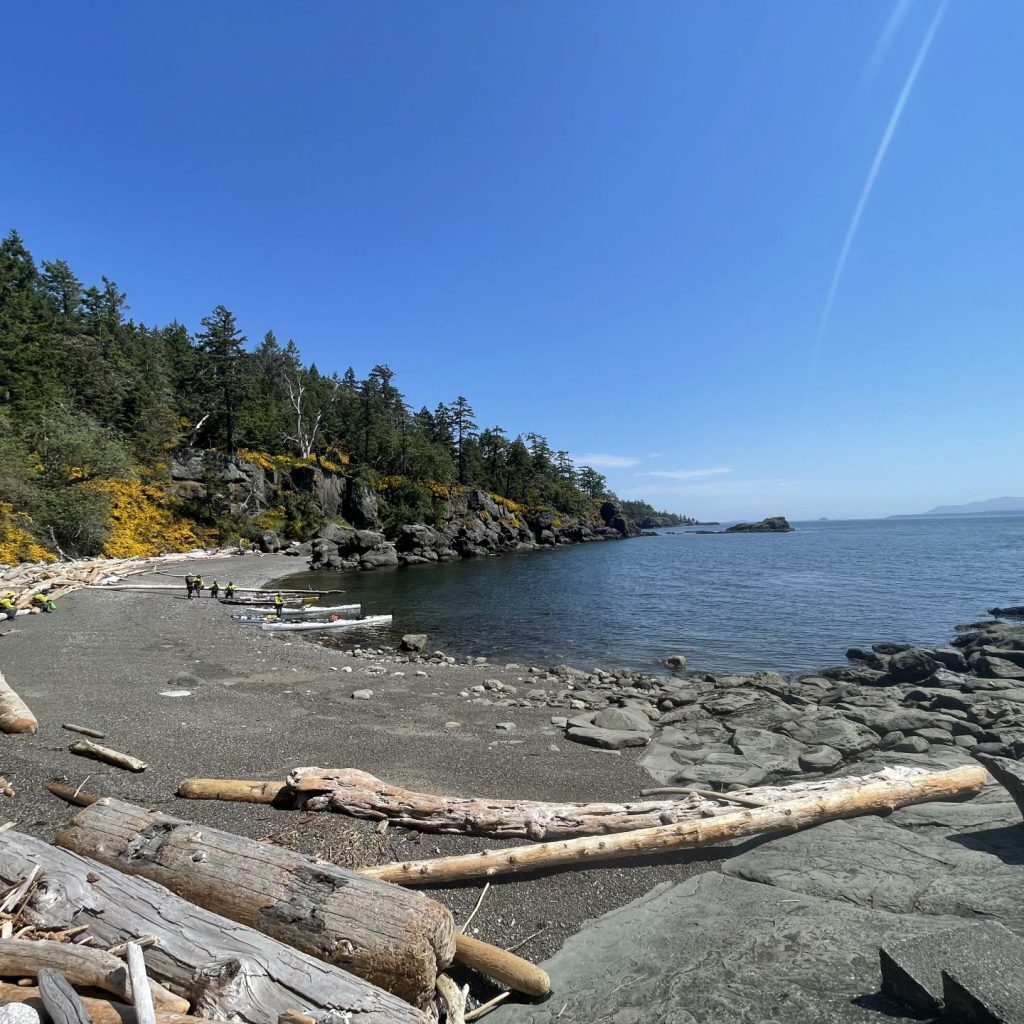
“As we turned to the headlands the sun started to break through, what a sight to behold. This golden staircase appeared on the water through snow-capped mountains; misty outcrops of ragged coastlines – we took a couple of minutes just taking in this beauty, lost in the moment just ‘being’, and feeling kinship with explorers and kayakers past and present…”
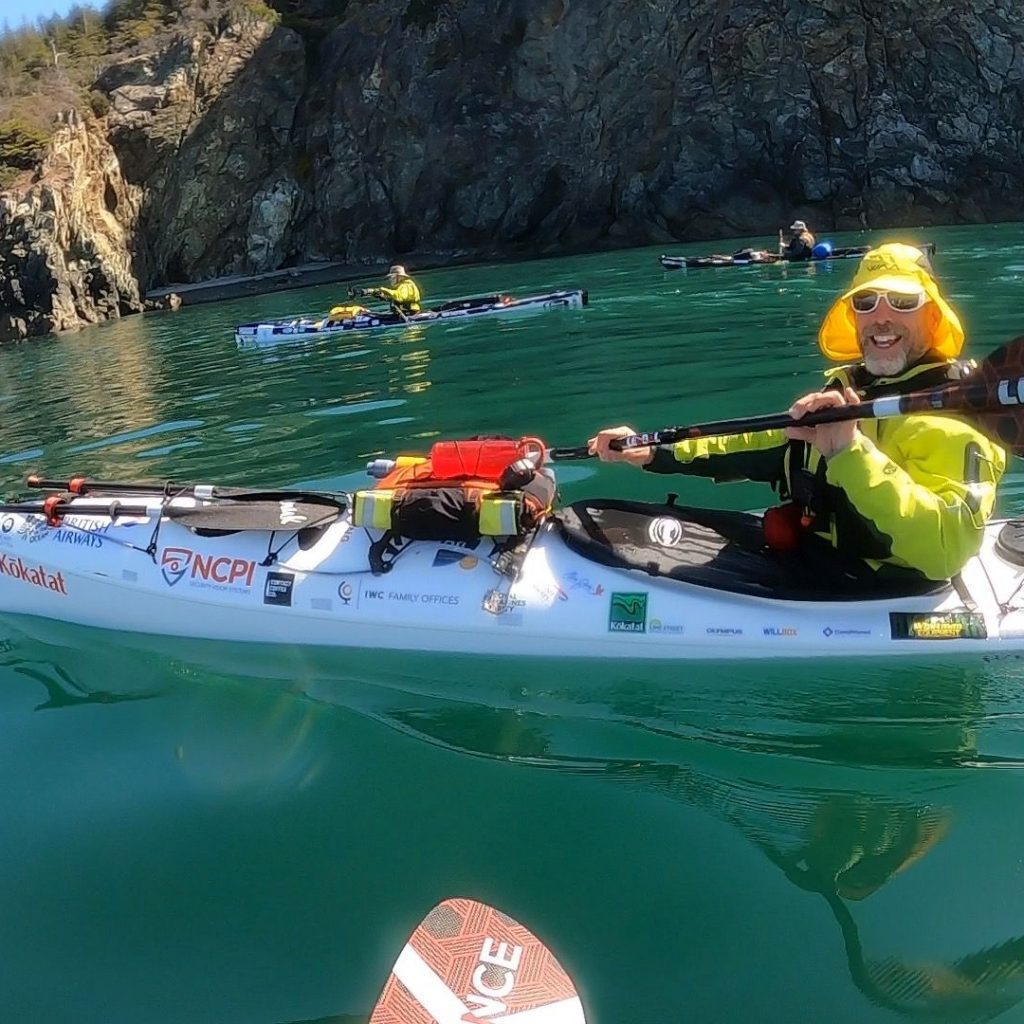
Most of all they describe the overwhelming feeling of striving together as a team, bound together on an adventure of a lifetime:
“Paddling as a team is one of the most fantastic experiences I have had, the formation looks awesome, kayaks staying in line, pushed out to the flanks. But for me it’s not just about the formation, it’s offering yourself up to the team; getting rid of all that bravado, the ‘I am’. It’s slotting into that position that the team comes first, handing yourself over to something that is bigger than you. Being better than you were yesterday, being selfless, committed to these seven guys.”
Awareness raised so far:
As well as fundraising, the team have created waves through the local communities they have encountered on their route and shared their story with; they are being cheered on by local organisations such as the Washington Water Trails Association; they have caught the imagination of experienced Inside Passage kayaker and author Susan Conrad, who personally made a two-hour round journey to deliver new supplies to the team at one of their camps, as well as providing invaluable advice based on her own experiences.
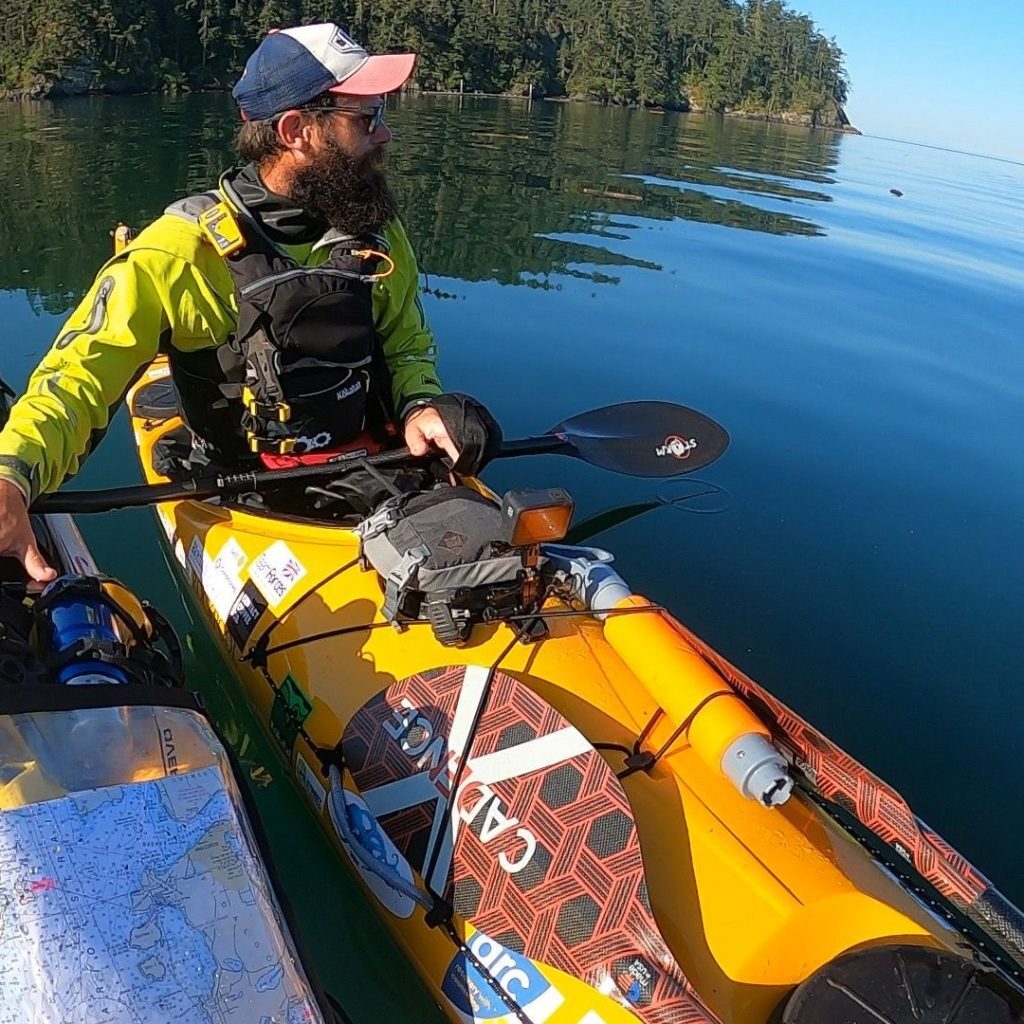
Back in the UK the team’s story has been picked up by BFBS (British Forces Broadcasting), who conducted an interview with the team skipper Theo. This media interest looks set to develop into further potential coverage.
On social media the team’s ‘Kayak the Inside Passage 2023’ page on Facebook has over 1000 followers and a they have a further 1,100 following their updates on Instagram.
The team send photo and video updates to their communications team back in the UK (a group comprising both their own and TNF representatives) which we then post on these channels garnering a lot of interest and engagement.
Their website includes a regularly updated .blog which makes fascinating reading: Kayak The Inside Passage – Forces of Nature | Blog (kayak-insidepassage.com)
The challenge ahead…
As the team strike out from the tip of Vancouver Island to navigate up the dramatic Fiordland coastline of British Columbia and into the waters of Alaska, they face even less human contact, intermittent phone and internet communications, and ever more reliance on their own resources, quick thinking, ingenuity and strength to cope with technical or medical issues. They’ll enjoy around 19 hours of daylight a day, but on the other hand more exposed and extreme currents and tidal and weather conditions. Physical exhaustion may become more of an issue, and the strain of many weeks on the water with the same group of men. Belief in themselves and belief in the team will become key, as they push themselves to mental and physical limits. But if the last few weeks are anything to go by, what a reward lies in store…




